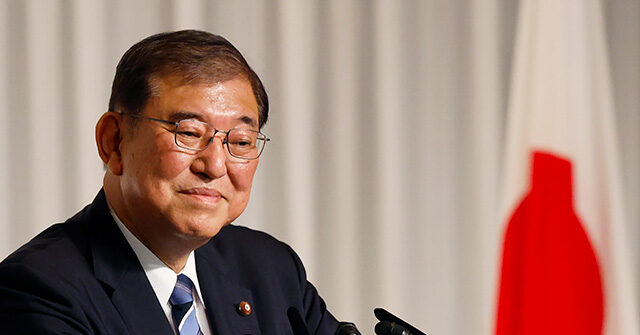Japanese Prime Minister Ishiba Shigeru is working to arrange a meeting with President-elect Donald Trump following the G20 summit in Brazil, scheduled for November 18-19, 2023. Ishiba recently had a brief yet cordial conversation with Trump, during which he conveyed his congratulations and expressed a desire to discuss various strategic, financial, and logistical issues in further detail. Ishiba’s upcoming international engagements include attendance at the Asia-Pacific Economic Cooperation (APEC) forum in Peru before heading to Brazil for the G20 meeting. Sources indicate that Ishiba aims to capitalize on this trip to solidify a relationship with the U.S. president, reminiscent of the bond his predecessor, Abe Shinzo, had with Trump.
The ties between Japanese leadership and Trump are particularly significant given the history of Ishiba’s predecessors. Abe developed a close friendship with Trump, characterized by informal gatherings and mutual interests such as golf and sumo wrestling. Trump mourned Abe’s assassination in July 2022, highlighting the former prime minister’s impact on both Japan and international relations. Following Abe, Kishida Fumio took office but faced significant challenges, including an assassination attempt just months into his tenure. Ishiba’s ascension in 2024 brings renewed hopes for a strong Japan-U.S. alliance, especially as Japan seeks to maintain a favorable position in the evolving geopolitical landscape.
The Japanese government’s strategic ambitions under Ishiba’s leadership are evident. Despite some apprehensions regarding the “America First” policy, members of Japan’s opposition, particularly Noda Yoshihiko from the Constitutional Democratic Party, are advocating for the establishment of a robust personal relationship with Trump. They believe this could be instrumental in ensuring that Japan’s strategic interests are prioritized in the forthcoming administration, especially given concerns surrounding security tensions in the Asia-Pacific region. Ishiba’s intent to foster personal relations indicates a broader approach to diplomacy, recognizing the importance of individual connections among world leaders.
One of Ishiba’s priorities during his anticipated discussions with Trump involves revising the Status of Forces Agreement (SOFA), which governs U.S. military presence in Japan. The agreement has remained unchanged since its inception in 1960, and Ishiba aims to enhance Japan’s authority in defense matters. Revisions to SOFA would likely require bipartisan support and engagement with Congress in the U.S., making acquiescence from Trump critical for progress. Ishiba’s broader defense strategy also includes the conception of an “Asian NATO,” which would unite Asian democracies such as Japan, South Korea, Australia, and New Zealand in a strategic alliance comparable to NATO.
However, the Asian NATO proposal faces skepticism from various regional stakeholders who question its necessity and fear it may provoke China. Current defense collaborations among these countries may already achieve the necessary security coordination without formalizing a new organization. The notion of such a military alignment raises concerns that it could heighten regional tensions, especially regarding Taiwan. Ishiba perceives Taiwan’s security vulnerabilities as a valid justification for proposing a mutual defense pact, emphasizing the need for enhanced deterrence mechanisms within the region.
Amidst these discussions, Ishiba’s focus on building personal rapport with Trump reflects a broader strategy of Japanese diplomacy that prioritizes human relations. His comments underscore diplomacy’s personal nature, expressing a commitment to making a strong first impression on Trump. The forthcoming engagement could yield crucial opportunities for dialogue on defense, economic stability, and regional security, positioning Japan to better navigate future challenges and assert its interests on the global stage. By emphasizing human connections, Ishiba hopes to foster a climate of trust and cooperation that will benefit both nations and stabilize their partnership in an increasingly uncertain geopolitical landscape.

